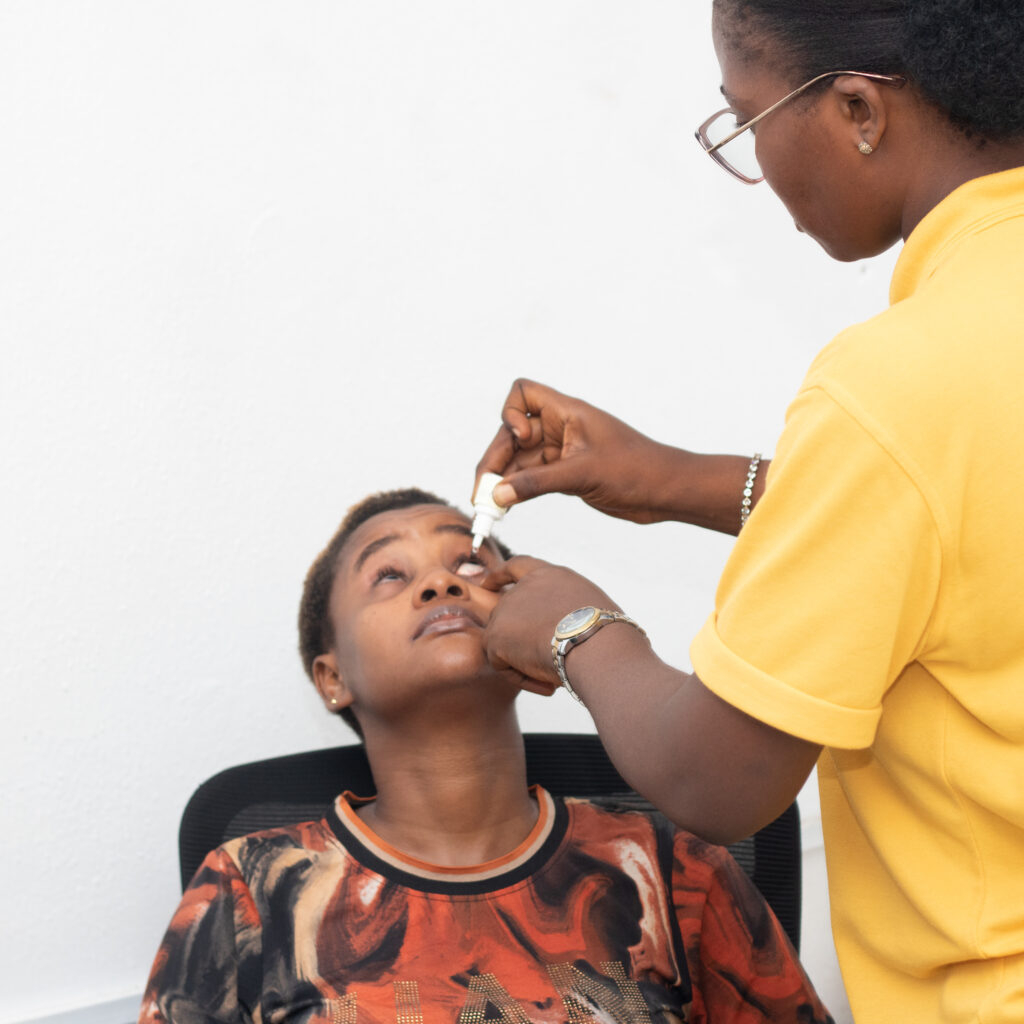
Our Services
At Rince Eyecare, we offer a comprehensive range of eye care services to meet the needs of all our patients. We are dedicated to identifying and delivering the best solutions tailored to your eye care requirements. Please take a look at the services we provide, and don’t hesitate to contact the clinic if you have any additional questions.
We are committed to offering eye care for patients with special needs. We believe that everyone should have access to full, inclusive eye care. Our doctors are trained to conduct eye exams for patients with special needs, regardless of any communication challenges or abilities.

Eye Examination
A comprehensive eye exam thoroughly examines the eye and visual system, including your prescription needs. It can detect eye conditions such as cataracts, glaucoma, strabismus, amblyopia, retinal detachment, macular degeneration, and other issues, as well as systemic health problems like diabetes, high blood pressure, and high cholesterol. It’s similar to a physical exam for your eyes. Depending on your age, risk factors, and overall health, it’s recommended to have a complete eye exam every 1-2 years.

Visusl Field Testing
Visual field testing is a non-invasive procedure that checks the extent of vision in each eye by measuring how far you can see in all directions—up, down, left, and right—without moving your head or eyes. It helps detect issues with both central and peripheral vision. Conditions like stroke, brain tumors, and optic nerve diseases such as glaucoma can cause visual field defects. Additionally, retinal disorders or eyelid problems may also require this test.

Children Eye Exam
It is advised to take your child for their first eye exam at 6 months, then at age 3, and again before starting school. Early eye checks are important to make sure your child’s vision is developing correctly. In Nigeria, the government provides coverage for eye exams annually for children between the ages of 0 and 19

Retina Imaging
Retinal imaging captures a digital image of your retina, allowing for a detailed view of the retinal structures and enabling the yearly monitoring of your eye health. These photos provide a clear visual representation of key components like the optic nerve, macula, and blood vessels. Regular retinal imaging is essential for detecting early signs of eye conditions such as glaucoma, diabetic retinopathy, or macular degeneration, helping to ensure that any potential issues are identified and addressed promptly.

Contact Lens
Contact Lenses are not a one-size-fits-all solution; they come in a range of types and sizes. During your contact lens evaluation, the doctor will measure the curvature of your cornea (the clear, front surface of the eye) using a keratometer. If the curvature of the lens is too steep or too flat for your corneal shape, it could lead to discomfort or potential ocular injury. The doctor will also ask about your preferences, such as whether you would like to use colored lenses or if you’re interested in options like rigid gas permeable lenses, scleral lenses, or daily, bi-weekly, or monthly lenses. If you are over 40, you may experience difficulty reading fine print, and the doctor may recommend monofocal or multifocal lenses to correct this age-related condition.

Dry Eye Management
During your dry eye evaluation, we will conduct a series of tests to thoroughly examine your ocular surface and tear film, identifying any areas that are not functioning properly. Dry eye occurs when there is an imbalance in the tear film, which is vital for maintaining healthy, comfortable, and clear vision. The tear film consists of three key components:
• A lipid layer (oil) produced by the meibomian glands in the eyelids. • An aqueous layer (water) produced by the lacrimal glands. • A mucin layer (mucus-like).
Each layer of the tear film plays an essential role, and any issues with these components can lead to tear instability and dry eye.
Common symptoms of dry eye include:
• Burning sensation • Itchy eyes • Dryness • Gritty or foreign body sensation • Pain or aching • Heaviness in the eyes • Soreness • Redness • Light sensitivity • Blurred vision • Excessive tearing
After your assessment, we will create a personalized treatment plan to target the root cause of your dry eye.
Your treatment plan may involve:
• Lubricating eye drops, ointments, or gels • Oral antibiotics • Nutritional supplements • Prescription eye drops
If you think you may be experiencing dry eye, contact our office to schedule your evaluation.

